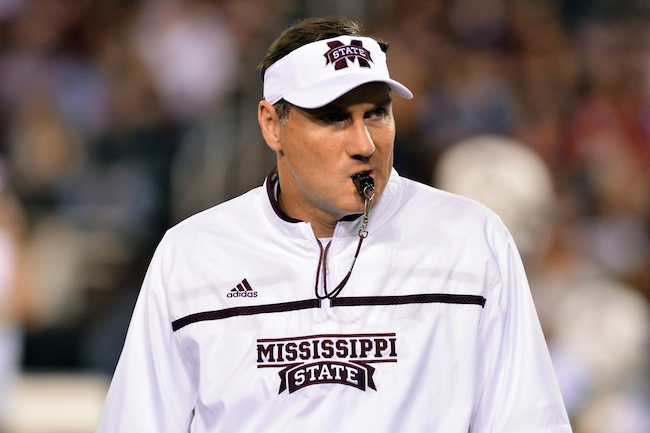
5 areas Mississippi State needs to improve in 2016
Mississippi State had a magnificent season despite many critics picking them to finish last in the SEC West. The Bulldogs won at least nine games in consecutive seasons for the first time in program history.
But in order to reach the next level, here are five areas where Mississippi State needs to improve the most before next season.
1. Pass Blocking: Without QB Dak Prescott under center next season, it would really help the Bulldogs if they received better protection up front. Even with the scrambling ability of Prescott, the Mississippi State offensive line allowed an average of nearly 2.5 sacks per game in 2015, which was ranked 91st in the nation. Unfortunately, the Bulldogs are losing their entire left side of the offensive line, so coach Dan Mullen will need new starters to step up in order to improve the pass protection.
2. Running Game: Prescott led the team in rushing last season. If Mississippi State wants to continue to have an elite offense, it needs more from its running backs. Junior RB Brandon Holloway gained 809 yards from scrimmage but nearly half of those yards were in the passing game. He needs to do more when given the opportunity to run the ball. Fellow running backs Ashton Shumpert and Aeris Williams are other candidates to help the ground game in 2016.
3. Defending the Pass: For how beat up Mississippi State was in its secondary, the Bulldogs did a pretty good job of defending the pass. Still, it could improve. Mississippi State allowed an average of 216.5 passing yards per game, which was just 10th best in the SEC. New defensive coordinator Peter Sirmon will be responsible for getting more from the secondary.
4. Forcing Turnovers: The lack of pass defense wouldn’t be as bad if the Bulldogs could win the turnover battle. But despite just five interceptions from Prescott, Mississippi State had a minus-four turnover margin. That’s because the defense only forced 14 turnovers in 13 games. Only 13 teams had fewer takeaways. The Bulldogs did grab 13 interceptions, however, only recovered one fumble. Mississippi State will have to set up its inexperienced quarterback with more short fields next year.
5. Covering Punts: The sample size was small because Mississippi State only allowed 10 punts to be returned all season, which was tied for the seventh-fewest in the country. But when opponents had the opportunity to return punts, they took advantage. The Bulldogs yielded 12.5 yards per punt return. That was ranked 114th in the nation.
